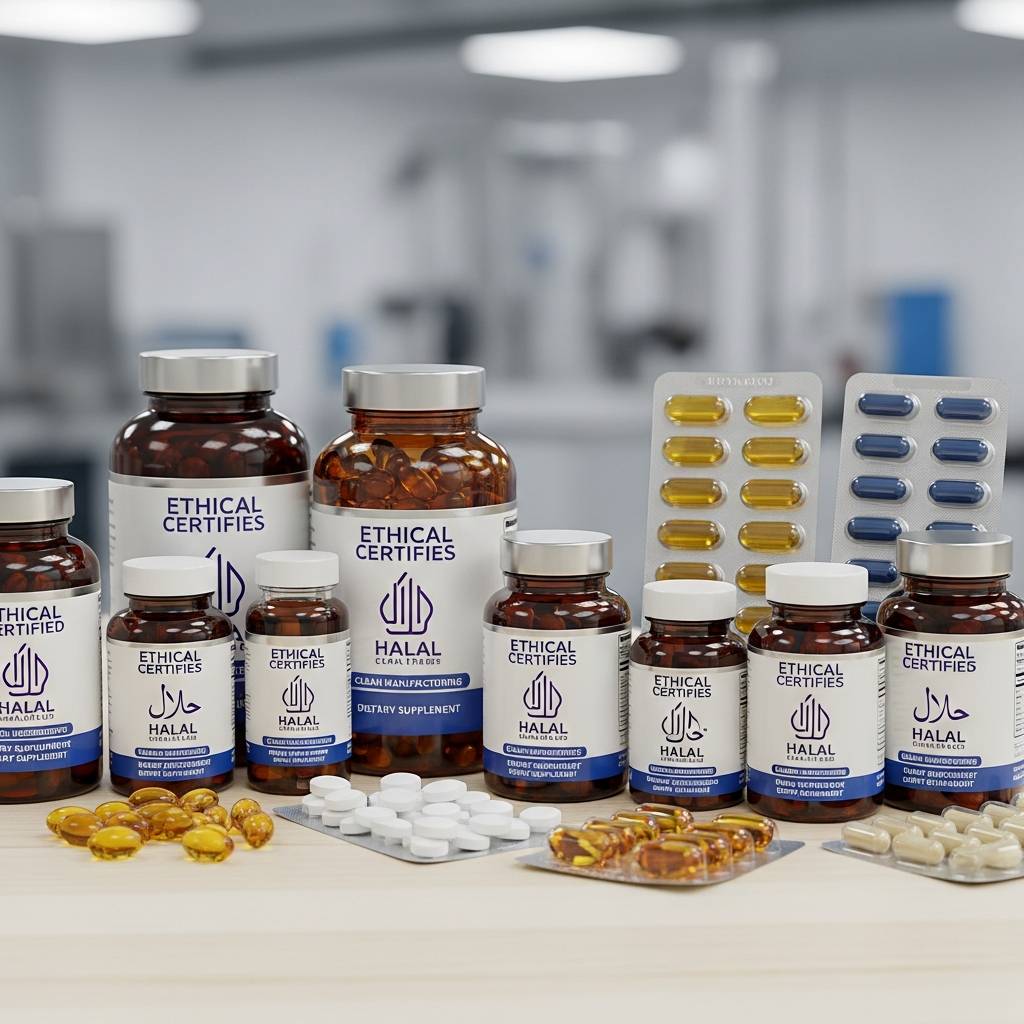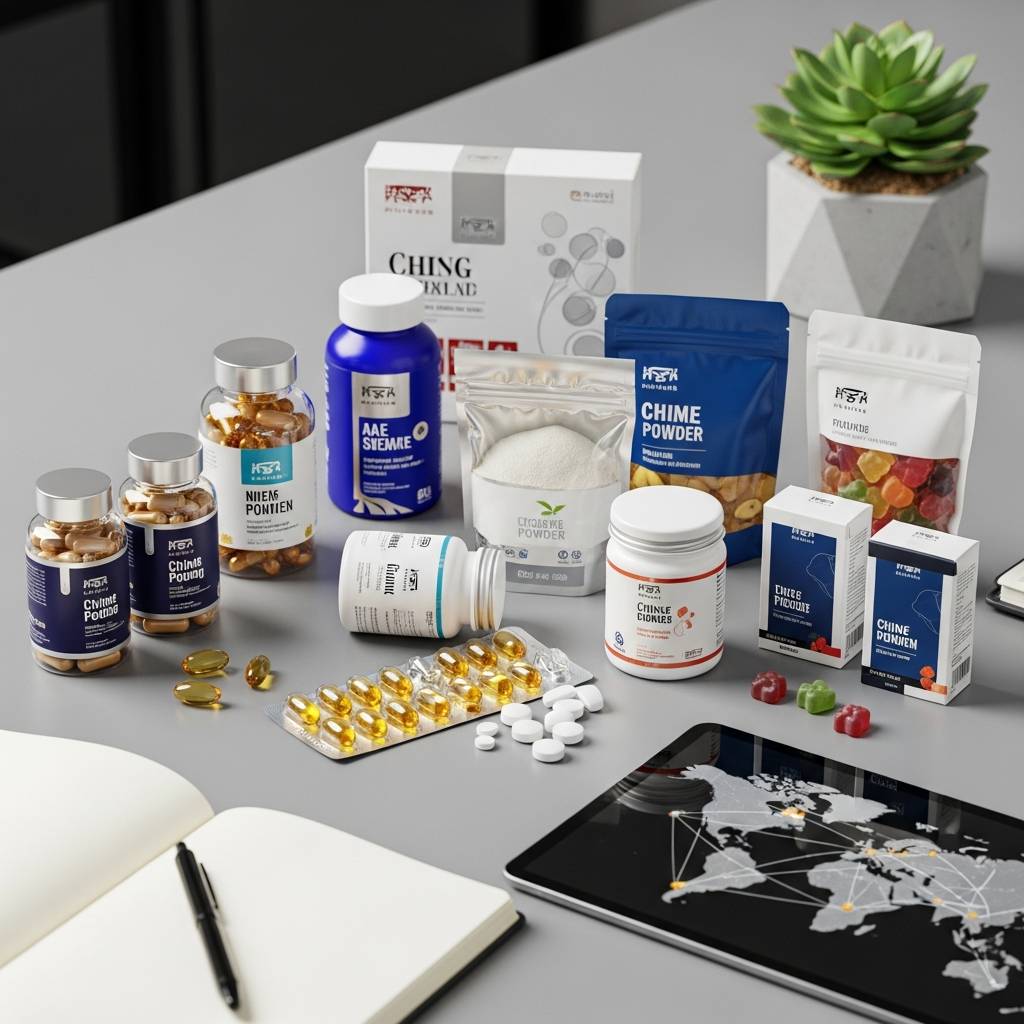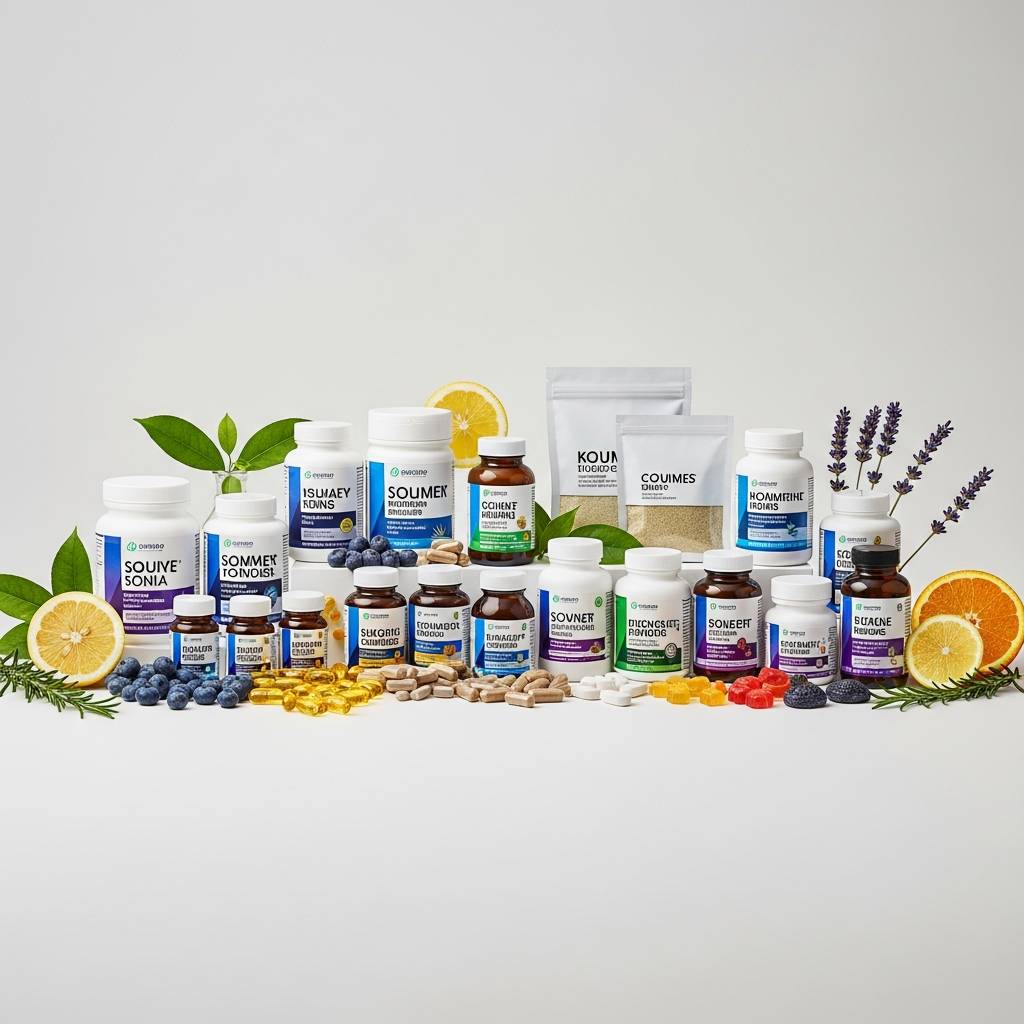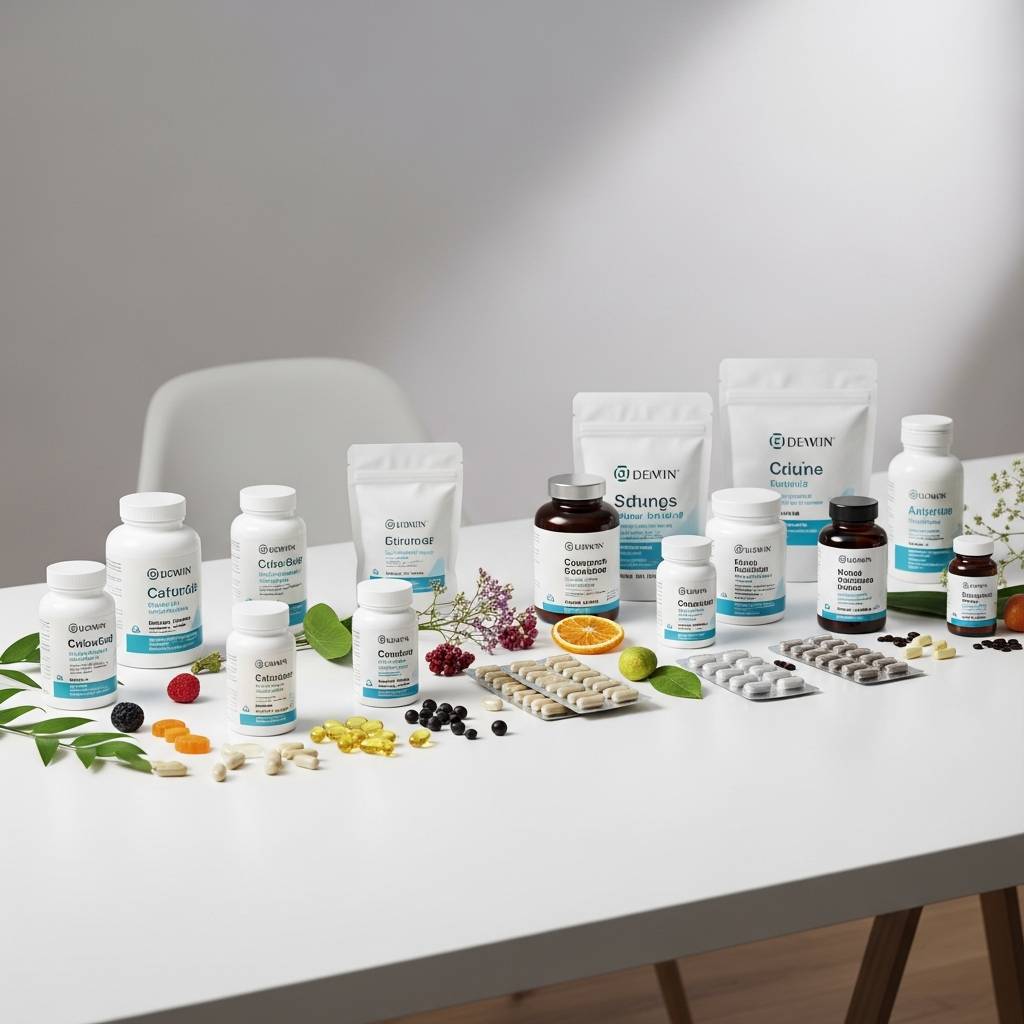Introduction: What Makes a Supplement Manufacturer High-Quality?
In the competitive and ever-growing dietary supplement industry, the definition of "high quality" is more complex than just the end product. High-quality supplement manufacturing encompasses various aspects such as raw material sourcing, production practices, testing procedures, and post-production evaluations. Quality is not just a key factor—it is the foundation for building a strong and trusted brand. A well-manufactured supplement ensures consumer safety, brand reliability, and compliance with international regulations, all of which contribute to the brand’s market success.
Manufacturers that prioritize quality control will find themselves at the forefront of the market. Consumers today are increasingly discerning, demanding transparency and traceability of ingredients, testing methods, and the production processes. A high-quality manufacturer must, therefore, adopt stringent standards and be committed to continuous improvements in quality to stay competitive.
Quality Management: The Backbone of Supplement Manufacturing
At the core of any high-quality supplement manufacturing process lies an unwavering commitment to quality management systems. These systems are designed to ensure that every batch of products consistently meets the required standards, from formulation to packaging. Among the key components of these systems are Good Manufacturing Practices (GMP) and ISO certification.
-
GMP Certification: Good Manufacturing Practices are a set of guidelines that ensure products are produced and controlled in a consistent manner, meeting safety and quality standards. For supplement manufacturers, GMP covers every aspect of production, from the initial sourcing of raw materials to the final packaging. It includes preventive measures for contamination, stringent sanitation protocols, and regular quality checks throughout the manufacturing process. Adhering to GMP ensures that the finished product is safe for consumers and compliant with regulatory bodies.
-
Key GMP principles include:
-
Documentation and batch tracking for full traceability
-
Cleaning and sanitation protocols to prevent contamination
-
Employee training on safety and quality standards
-
Testing for potency, purity, and label accuracy
-
-
-
ISO Certification: The International Organization for Standardization (ISO) provides a globally recognized set of quality standards, ensuring that manufacturers adhere to quality processes that meet both customer and regulatory requirements. ISO standards not only enhance product consistency but also foster trust and credibility in the market. For supplement manufacturers, ISO certification typically covers aspects such as quality control, manufacturing processes, and product testing.
-
ISO 9001 focuses on the overall quality management system and continuous improvement.
-
ISO 22000 addresses food safety management, ensuring supplements are safe for consumption.
-
By maintaining GMP and ISO certifications, manufacturers demonstrate their commitment to delivering high-quality supplements that adhere to global standards.
Custom Manufacturing: The Power of OEM and ODM Services
For many supplement brands, the ability to customize products is a key differentiator in the market. The increasing demand for personalized supplements has led to a significant rise in OEM (Original Equipment Manufacturer) and ODM (Original Design Manufacturer) services. These services allow supplement brands to offer tailored products that meet the specific needs of their consumers.
-
OEM (Original Equipment Manufacturer): OEM services allow brands to develop and sell supplements using pre-existing formulas. These manufacturers handle the entire production process, from sourcing ingredients to manufacturing the final product. OEM suppliers often provide flexibility in product size, packaging, and labeling to match the brand’s unique identity. This makes it an attractive option for new brands looking to enter the market with minimal overhead.
-
Benefits of OEM:
-
Lower upfront investment, as the manufacturer already has the infrastructure for production.
-
Faster time-to-market with ready-to-use formulations.
-
Customizable branding and packaging options.
-
-
-
ODM (Original Design Manufacturer): ODM services go beyond OEM by offering custom formulations based on a brand's specific requirements. ODM manufacturers can design new supplement products from scratch, allowing brands to offer innovative, one-of-a-kind products. For companies with unique or proprietary formulations, working with an ODM can give them a competitive edge by providing exclusive products that can’t be found elsewhere.
-
Benefits of ODM:
-
Custom product development based on the brand's vision and market research.
-
Greater control over the formulation and design.
-
More opportunity for innovation and differentiation in a crowded market.
-
-
By offering OEM and ODM services, manufacturers empower brands to develop products that reflect their unique value propositions while ensuring that the production process maintains high standards of quality, safety, and efficacy.
Innovation and Technology: Enhancing Quality through Modern Solutions
In recent years, technological advancements have transformed supplement manufacturing, enabling manufacturers to create more effective, reliable, and high-quality products. Innovation is no longer a luxury; it’s a necessity for staying competitive and meeting the ever-evolving demands of consumers. Manufacturers who adopt cutting-edge technologies not only improve the performance and bioavailability of supplements but also enhance the consistency and safety of their products.
-
Nanotechnology: Nanotechnology involves manipulating materials at a molecular or atomic scale, allowing the development of nano-sized ingredients that have superior absorption and bioavailability. For example, nano-sized vitamins and minerals can be absorbed more effectively by the body compared to their standard forms, providing faster and more efficient results. Nanotechnology is particularly beneficial for fat-soluble vitamins, such as Vitamin D, and lipophilic compounds, which can be difficult for the body to absorb in their natural state.
-
Benefits:
-
Enhanced nutrient absorption
-
Increased bioavailability and efficacy
-
Reduced dosage required for the same effect
-
-
-
Encapsulation Technologies: Encapsulation is a process where active ingredients are enclosed in a shell to protect them from degradation and improve their stability. Advanced encapsulation technologies, such as soft gels and liquid encapsulation, have become increasingly popular for supplements. Soft gels, in particular, are ideal for fat-soluble supplements and those that require quicker absorption in the body.
-
Benefits:
-
Protects ingredients from oxidation and degradation
-
Improves the stability and shelf life of supplements
-
Facilitates targeted delivery for enhanced bioavailability
-
-
-
Delivery Systems and Liquid Supplements: In addition to encapsulation, innovative delivery systems such as liposomal technology and microspheres have become game changers in supplement manufacturing. These technologies ensure that active ingredients reach their target area in the body intact, preventing premature degradation. Liquid supplements have gained traction because of their faster absorption rate compared to tablets or capsules, which is especially important for individuals who may have difficulty swallowing pills.
-
Benefits:
-
More efficient nutrient delivery
-
Enhanced absorption rates
-
Convenience for consumers who prefer liquids over pills
-
-
By leveraging these technologies, supplement manufacturers can significantly enhance product quality, providing consumers with more effective, reliable, and convenient products.
Cost-Efficiency: Balancing Quality with Competitive Pricing
While quality is paramount, supplement manufacturers must also consider cost-efficiency to remain competitive in the global marketplace. Balancing high-quality standards with cost-effective manufacturing processes is crucial for maintaining profitability while still delivering value to consumers. There are several key strategies manufacturers can employ to reduce production costs without sacrificing product quality.
-
Automation: Automation is a key driver of cost savings in manufacturing. By integrating automated systems into the production process, manufacturers can reduce labor costs and minimize human error. Automation also leads to higher consistency and efficiency, which are essential for maintaining product quality across large production runs. Automated systems can handle tasks such as capsule filling, labeling, and packaging, which reduces time and resources spent on manual labor.
-
Benefits of Automation:
-
Reduces labor costs
-
Increases production efficiency and speed
-
Enhances product consistency and reduces errors
-
-
-
Supply Chain Optimization: Efficient supply chain management is critical for reducing costs and ensuring timely delivery of supplements. Manufacturers can optimize their supply chain by sourcing raw materials in bulk, building long-term relationships with reliable suppliers, and implementing just-in-time (JIT) inventory management systems. This reduces the need for excessive stockpiling and minimizes the risk of inventory wastage.
-
Benefits of Supply Chain Optimization:
-
Cost savings through bulk purchasing
-
Faster delivery times due to streamlined logistics
-
Reduced risks of material shortages or delays
-
-
-
Lean Manufacturing: The concept of lean manufacturing focuses on minimizing waste and optimizing processes to improve efficiency. Lean practices can be applied across various areas of production, from material handling to energy consumption. By continuously evaluating and eliminating non-value-added activities, manufacturers can significantly reduce production costs while maintaining the quality of their products.
-
Benefits of Lean Manufacturing:
-
Reduces waste and operational inefficiencies
-
Improves overall productivity
-
Lowers production costs without compromising quality
-
-
By combining these strategies, supplement manufacturers can achieve a competitive price point without sacrificing the high standards of quality that consumers expect.
Global Perspective: Chinese Manufacturing and Global Distribution
The growing demand for high-quality supplements has made global sourcing a key factor in supplement manufacturing. In particular, Chinese manufacturing has become a dominant force in the supplement industry due to its cost-effectiveness, advanced production facilities, and strong supply chain infrastructure. Many global supplement brands rely on China’s manufacturing capabilities for producing large quantities of products at competitive prices, while still meeting international quality standards.
As supplement manufacturing becomes more globalized, manufacturers must consider the challenges and opportunities that come with international distribution and compliance.
-
Global Distribution: China’s established manufacturing base and infrastructure enable manufacturers to efficiently scale their operations for international distribution. A strong global distribution network ensures that products reach global markets in a timely and cost-effective manner. Shipping, customs management, and logistics are essential components of the supply chain, and manufacturers need to have robust systems in place to ensure smooth operations.
-
Benefits of Global Distribution:
-
Access to large international markets
-
Reduced shipping times and costs with efficient logistics
-
Flexibility in adapting to different market demands
-
-
-
Supply Chain Management and Raw Material Sourcing: Effective supply chain management is key to ensuring that supplement manufacturers can meet the growing demand for quality products. By maintaining strong relationships with suppliers and distributors, manufacturers can secure a steady flow of raw materials and reduce lead times. Raw material sourcing is especially important for supplements that require high-quality, specialized ingredients, such as herbal extracts or bioavailable nutrients.
-
Challenges:
-
Fluctuating costs of raw materials
-
Regulatory challenges related to ingredient sourcing
-
Need for compliance with global safety standards
-
-
-
International Compliance and Regulatory Challenges: As supplement manufacturers expand into global markets, they must navigate the regulatory landscape in each country or region. Different markets have different rules and standards for dietary supplements, such as those set by the FDA in the U.S. or EFSA in Europe. Ensuring compliance with local regulations is crucial for maintaining product quality and avoiding costly legal issues.
-
Global Certification: Supplement manufacturers must often meet specific international certification requirements, such as GMP, ISO, and FDA registration, to ensure they are in compliance with market regulations. These certifications not only ensure that the product is safe but also signal to consumers that the manufacturer adheres to global quality standards.
-
Benefits of Global Compliance:
-
Builds consumer trust and brand credibility
-
Ensures product safety and effectiveness in international markets
-
Helps manufacturers avoid costly regulatory fines or product recalls
-
-
Conclusion: The Path to High-Quality Supplement Manufacturing
High-quality supplement manufacturing is not just about producing a product; it’s about delivering a consistent, safe, and effective experience for consumers. Manufacturers must adhere to stringent quality standards, including GMP and ISO certifications, to ensure that every batch meets or exceeds expectations. Customization through OEM and ODM services allows manufacturers to cater to the specific needs of brands, ensuring products are tailored to the unique preferences of consumers.
Technological advancements, such as nanotechnology and encapsulation, are essential for improving the bioavailability and stability of active ingredients, which is critical for enhancing the effectiveness of supplements. At the same time, cost-efficiency is a key factor in staying competitive, and manufacturers must optimize their production processes to achieve lower prices without compromising quality.
Chinese manufacturing and global distribution are pivotal to meeting the growing international demand for high-quality supplements. By implementing robust supply chain management and adhering to international compliance standards, manufacturers can scale their operations while ensuring the highest quality and safety standards are met across global markets.
To succeed in the highly competitive supplement industry, manufacturers must remain dedicated to quality, innovation, and continuous improvement. As the demand for personalized, high-quality supplements continues to rise, the manufacturers who invest in these principles will be well-positioned to thrive.






